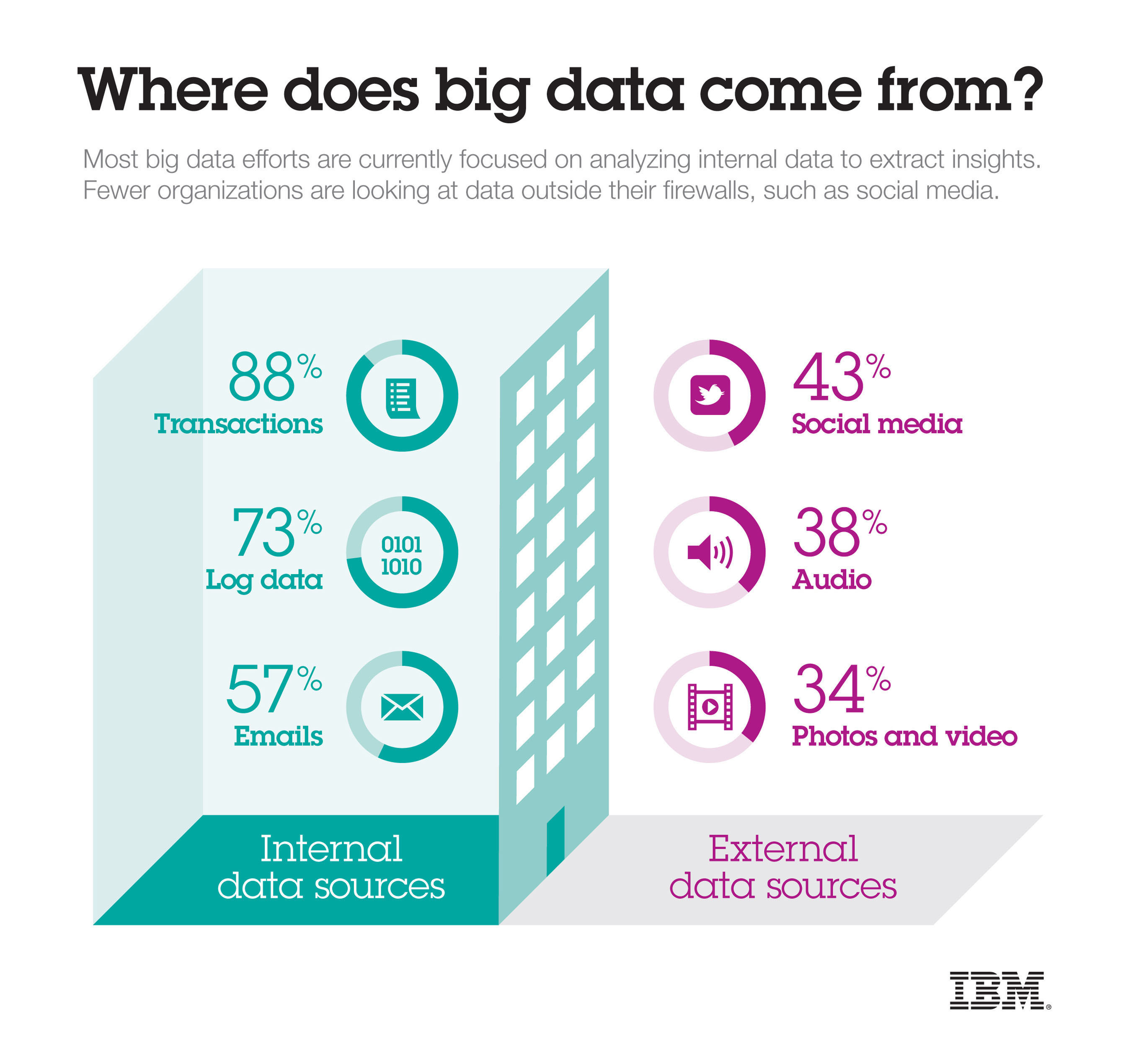Most big data initiatives being deployed by organisations are aimed at improving the customer experience yet less than half of organisations taking part in big data initiatives are collecting and analysing external sources of data, such as social media, a new global report suggests.
One reason is many organisations are struggling to address and manage the uncertainty inherent within certain types of data, such as the weather, the economy, or the sentiment and truthfulness of people expressed on social networks, reveals the Analytics: The Real-World use of Big Data report by IBM and the Said Business School at the University of Oxford.
The report also shows that respondents questioned their ability to trust comments, reviews, tweets and other forms of freely offered opinions online. While uncertain, social media data still contains information that should be embraced, managed and used to organisations’ advantage.
Skills gap
Another reason for the underutilisation of social media and other external data sources is the skills gap. Having the advanced capabilities required to analyse unstructured data – data that does not fit in traditional databases such as text, sensor data, geospatial data, audio, images and video – as well as streaming data, remains a huge challenge for most organisations.
Only 25pc of the report’s survey respondents say they have the required capabilities to analyse highly unstructured data – a major inhibitor to getting the most value from big data.
However, nearly 63pc of respondents report that using information, including big data, and analytics, is creating a competitive advantage for their organisations. This is a 70pc increase from the 37pc who cited a competitive advantage in a 2010 IBM study.

“Most companies recognise the potential for big data to improve decision making and business outcomes across the enterprise. What they struggle with, however, is how to get started on their big data journey,” said Michael Schroeck, global information management leader, IBM Global Business Services.
“Across industries and geographies, the survey found that organisations are taking a pragmatic approach to big data. While the majority of them are still in the early stages of adoption, leading organisations are beginning to derive significant value from their big data initiatives.”
Data analysis
Today, most organisations engaged in big data activities start with analysing structured data using core analytics capabilities, such as query and reporting (91pc) and data mining (77pc). Two-thirds (67pc) report using predictive modelling skills.
But big data also requires the capability to analyse semi-structured and unstructured data, including a variety of data types that may be entirely new for many organisations.
Big data image via Shutterstock
Join Ireland’s digital leaders who will gather to discuss cloud computing and the big data revolution at the Cloud Capital Forum on Friday, 23 November, at the Convention Centre Dublin